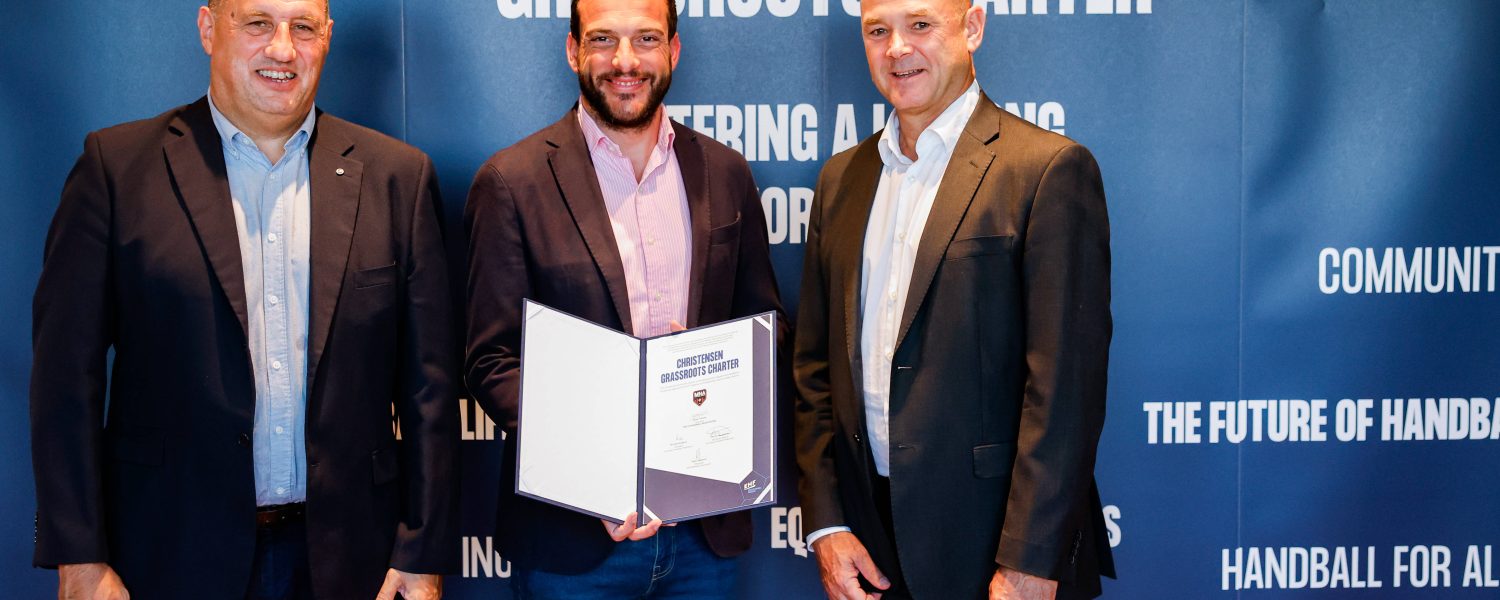Alan Grima re-elected to EHF Court of Handball
The Malta Handball Association (MHA) has officially signed the Christensen Grassroots Charter, a landmark initiative launched by the European Handball Federation (EHF) to establish a unified framework for the growth and development of grassroots handball across Europe.
By joining the first wave of federations to adopt the Charter, Malta is demonstrating a strong commitment to sustainability, inclusion, and the long-term development of youth in the sport.
EHF Secretary General Martin Hausleitner highlighted the significance of this initiative: “The development of grassroots handball is not just an initiative; it is a vital strategical commitment to the future of our sport and our communities. By fostering an inclusive environment that promotes lifelong participation in handball – regardless of age, gender, background, or ability – we lay the foundation for a vibrant and sustainable culture. Grassroots handball serves as the lifeblood of our sport, offering avenues for non-professional players to engage as fans, volunteers, and advocates.”
The signing took place on the eve of the 17th Ordinary EHF Congress in Andau, Austria, where MHA President Daniel Tabone represented Malta.
“By signing the Christensen Grassroots Charter, we are not only committing ourselves to the principles of inclusivity and lifelong participation but also strengthening the foundations we have been building through our Master Plan. Grassroots development is the heartbeat of our sport, and this charter provides the framework and recognition to continue inspiring young players, coaches, referees and administrators in Malta.” – Daniel Tabone, President – Malta Handball Association.
The Christensen Grassroots Charter, named in recognition of Morten Stig Christensen, supports national federations in creating lifelong pathways for participation in handball. It places emphasis on accessibility, inclusivity, and enjoyment, while also offering guidance in areas such as coaching, refereeing, education, competitions, and community engagement.
Malta’s signature comes at a time of strong growth for the sport, guided by the Association’s Master Plan. Recent initiatives include the Mini-Handball Project, which through the hard work of clubs has engaged over 20 schools. Last season, the Mini-Handball Festivals attracted more than 450 boys and girls, underlining the growing enthusiasm for the sport at grassroots level. Other initiatives include the launch of the MHA Handball Academy for 13–17-year-olds, which is already feeding talent into the national youth teams; and the introduction of RINCK-aligned courses to enhance coach and referee education. The Association has also deepened collaboration with the Maltese Olympic Committee to promote both indoor and beach handball, with a particular emphasis on women’s participation, while expanding interschool tournaments to further embed the sport within the education system.
These efforts strongly reflect the spirit of the Christensen Grassroots Charter, fostering community engagement, inspiring young athletes, and promoting fun, participation, health, and inclusion
Representation at EHF Court of Handball
The signing of the Christensen Grassroots Charter was not the only milestone for Malta at the Congress. The 17th Ordinary EHF Congress, held in Andau, Austria under the motto “Next Level. Every Game”, was dominated by elections, with Michael Wiederer confirmed for a third term as EHF President (2025–2029).
Malta received further recognition as Alan Grima, representing the Malta Handball Association, was re-elected for a second term to the EHF Court of Handball. His appointment further strengthens Malta’s presence and influence within continental handball governance, ensuring the country continues to be actively represented in shaping the sport’s future direction and regulatory framework at European level.
In addition, delegates approved three constitutional motions: one to enhance the integrity and fairness of voting for members and gender representatives; another clarifying the delegation of decision-making from Congress to the Executive Committee; and a third amending the recognition of sanctions issued by national federations in EHF competitions.

